Two Tools for Effective & Focused Practice
In a time when students aren't able to receive the feedback to which they have become accustomed, we have to be able to adapt and find strategies for receiving that feedback ourselves.
Mirrors - Mirrors have often been compared to "your teacher's eyes" because when you take time to look at various aspects of your posture and technique from various angles, they are the same view that your teacher is using to assess your playing.
For violin & viola, you may try angling your bridge so that it is perpendicular to the mirror (making the reflection as thin as possible) so that you can assess parallel bows. For cello, you may try angling a mirror upward towards your left forearm to check for a straight wrist and proper pronation/supination when performing shifts to higher positions as well as extensions.
For everyone, you can remove the instrument, and check for body posture (balanced weight between both feet or sitz bones, elongated spine, even shoulders, and balanced head on top of the spine) and even monitor mounting tension and disfigurement during playing.
Recording Devices - If you're participating in the virtual recital, you already know the massive role that recording yourself can play in proper self-assessment. Often when we have to physically play an instrument, our minds are so consumed with the technicalities of physical coordination of so many moving parts that it's difficult to even remember how we sounded. Recording allows for us to experience our performance objectively from an aesthetic standpoint as well as to assess what physical things may be preventing us from succeeding.
Assessment though recording also allows us to more accurately pinpoint which techniques need to be addressed and where specifically those spots are found within the piece. It allows us to generalize less and be more intentional in our practice by creating tailored to-do lists for our practice time. In turn, our practice sessions become more focused and more effective, rather than meandering around, hoping for progress.
If you haven't already, try these two tools to help you gain greater awareness of what needs to be addressed during your practice!
